By Sangeeta Sharma
New Delhi, Aug 15 (LAB) While unfurling the Tricolour at the Supreme Court Premises today Chief Justice of India N V Ramana said that the Indian Constitution is complete in itself and gives wide-ranging powers and jurisdiction to the Judiciary to do complete justice.
Speaking during the celebrations of 75th Independence Day at the Supreme Court Complex, on Monday, Justice Ramana said that the Judicial system of the country was unique, not only because of its commitment to the written Constitution and its spirit but also because of the immense faith reposed by the people in it. “People are confident that they will get relief and justice from the judiciary. It gives them the strength to pursue a dispute. They know that when things go wrong, the judiciary will stand by them.
Indian Constitution gives wide-ranging powers and jurisdiction to the Supreme Court to do complete justice. This power to do absolute justice under Article 142, brings to life the motto of the Indian Supreme Court, ‘Yatto Dharma Sthato Jaya’ (Where there is Dharma, there is Victory),” he added.
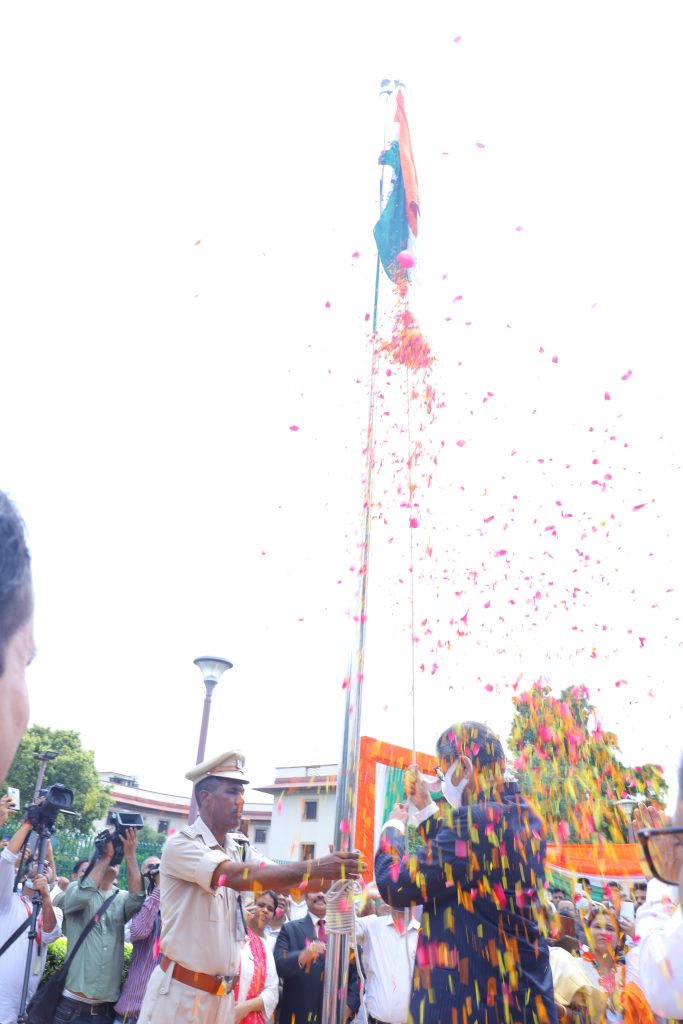
The CJI said that the struggle for independence was not merely for freedom from a colonial power, it was for the dignity of all. It was for laying the foundation of democracy. This foundation was laid through years of detailed deliberation in the constituent assembly, which produced the most progressive and scientific document, the Constitution of India.
“Today, we are celebrating the transformational journey of 75 years,
in which we were a mere colony and have emerged as the largest democracy in the world. He said, “The goal was to establish a democracy, where a nation is built on aspirations of people and where equality takes centre stage. To have a democratic form of governance, was of utmost importance for us to hold the society together.
Today Indians are occupying key positions across the world and contributing in a big way to shaping the global future. They are the products of independent India. We must thank the founders of independent India, for their vision and for setting up great institutions of learning, Justice Ramana said.
“As we sit and cherish the journey we have undertaken so far; we must not forget the contribution of the great freedom fighters and legal minds who made this journey possible. Throughout the struggle for independence, lawyers like Mahatma Gandhi, Motilal Nehru, Sardar Patel, C.R. Dash, Andhra Kesari Tanguturi Prakasam Patulu Garu, Lala Lajpat Rai, Saifuddin Kitchlew and P.V. Rajamannar fought their battles from courts to the streets.
“Similarly, the story of framing of our constitution would be incomplete without recounting the contribution made by the lawyers. Many of the drafters left their lucrative practices to be a part of this endeavour. Dr B.R. Ambedkar, Alladi Krishnaswamy Iyer, K.M. Munshi, Purushottam Das Tandon, T.T. Krishnamachari, G.B. Pant, Gopalaswami Ayyangar were few of the celebrated members of the constituent assembly. It was their dedication to the people, sacrifice for the cause and the deep commitment to the future, which shaped our Constitution,” Justice Ramana said.
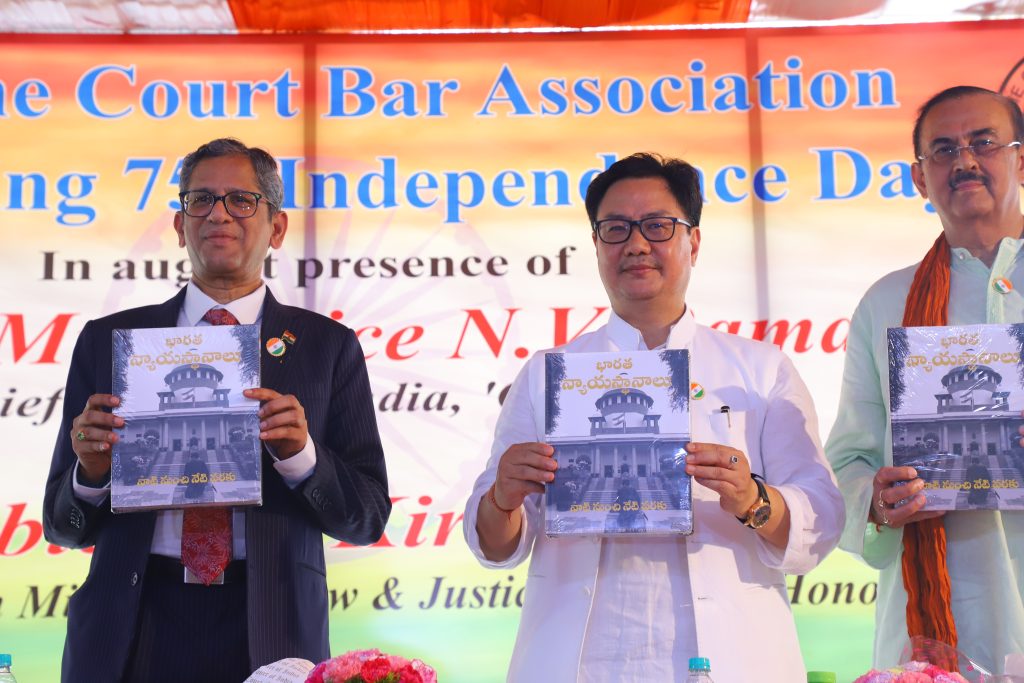
The Indian judiciary, since its inception, strove to fulfil constitutional aspirations. The judiciary has, through interpretative exercise, also strengthened various independent institutions, be it the Election Commission, the Central Vigilance Commission, the Comptroller and Auditor General of India and so on, added the CJI.
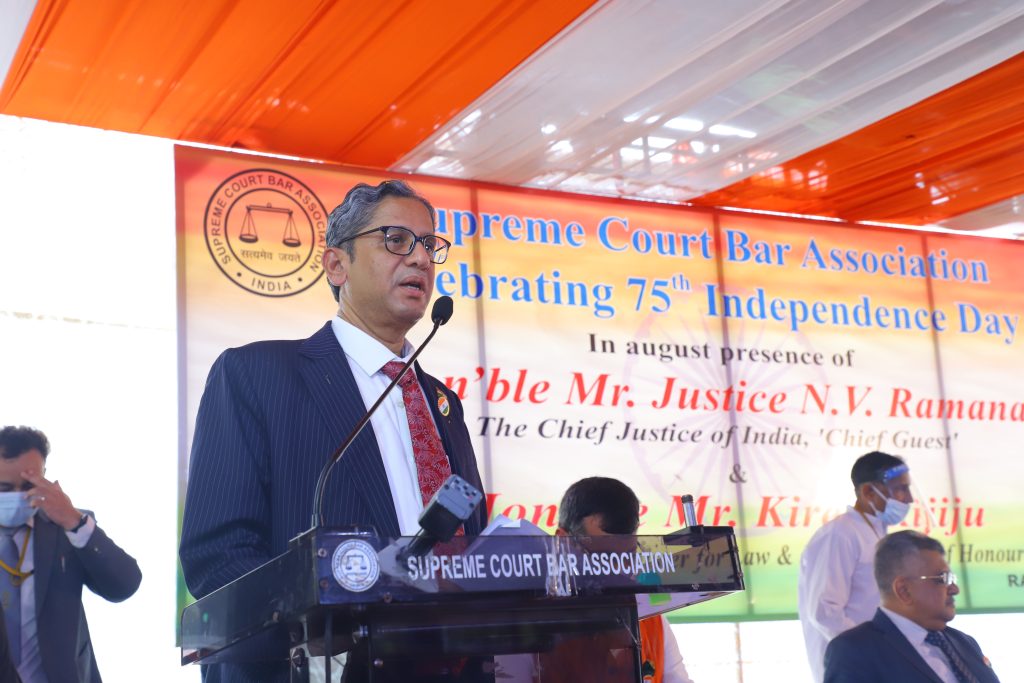
CJI said that the act of doing justice transcends beyond the laws. He quoted Sri Nani Palkhivala, “Dharma lives in the hearts of public men; when it dies there, no Constitution, no law, no amendment, can save it”.
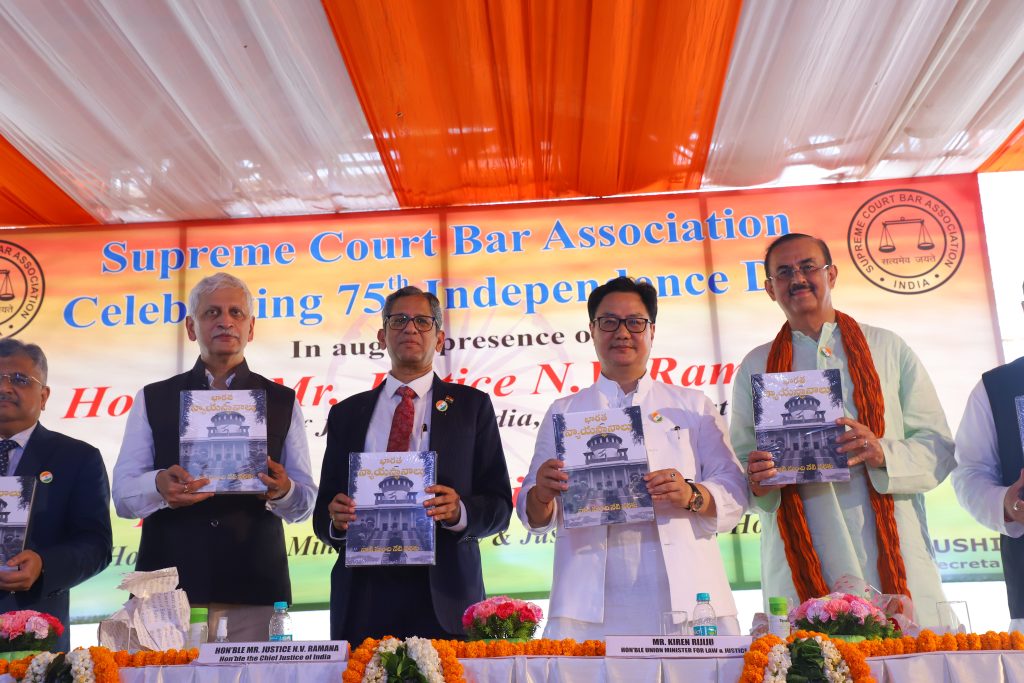
The CJI called language as a significant key to accessibility. “Today, in the interest of disseminating information, we have released a quality publication of Supreme Court in Telugu. With this, we have this
book ‘Courts of India – Past and Present’ in seven languages. I hope this book will appear in all Indian languages soon. I congratulate the Director and officials of the Supreme Court Library for doing a commendable job. It has been my personal endeavour to advocate for the Indianisation of the Judiciary.
“Our system will truly belong to the people when we honour and cherish
our diversity. The lawyers are best placed to be the ambassadors in promoting constitutional culture and spirit. While it is the mandate of the constitutional courts to uphold human rights and fundamental
freedoms, lawyers play an instrumental role in leading the courts in the right direction. It is essential for each generation to share with successive
generations the experiences and struggles of the past.
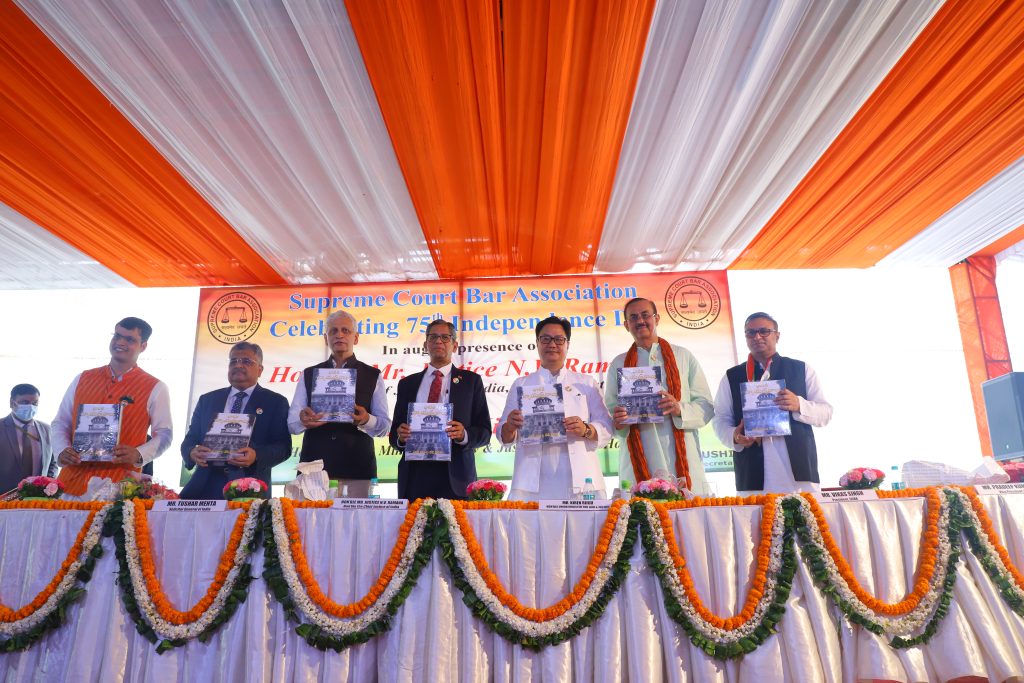
“My caution to the young professional is that there is no shortcut to success. Hard work and sincerity always pay in the long run. One should not lose hope. Remember your commitment to society. This institution needs your vigour and the freshness of your thoughts. I urge every citizen, to be a meaningful stakeholder in our democracy. We all must try to imbibe the Constitutional philosophy in its true spirit,” he added.
On the occasion, Justice Ramana remembered Keertiseshulu Sri Pingali Venkayya Garu, the architect of the Indian National Flag, who “hailed from Telugu land”.
“It is he, who designed the pride and identity of Independent India, our National Flag,” noted the CJI.
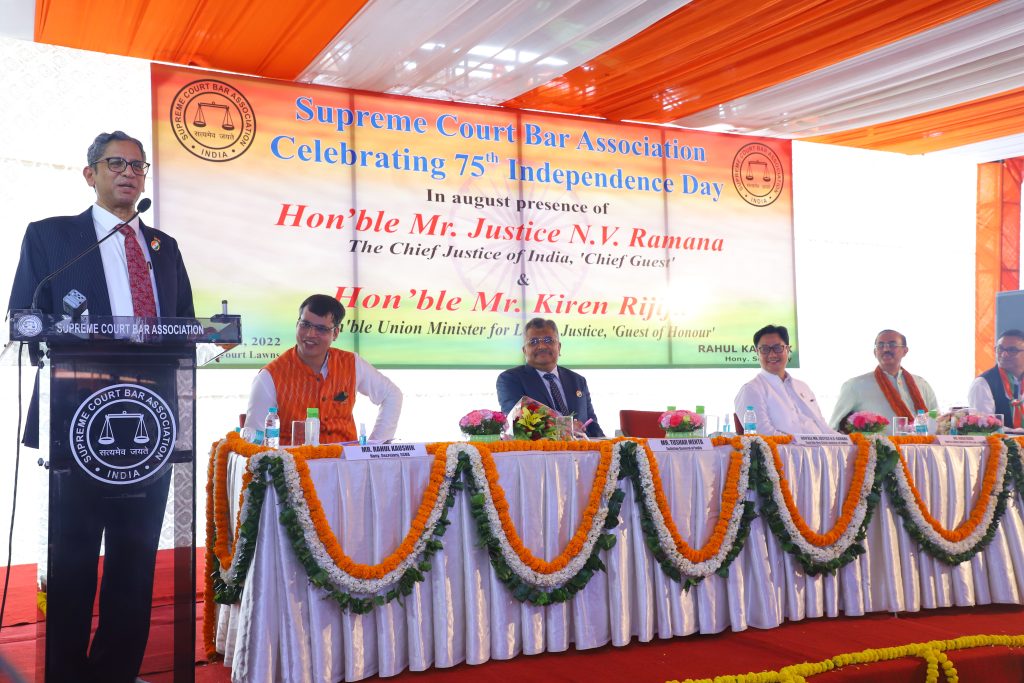
Lauding the role of the Supreme Court Bar Association (SCBA), which organised the event, Justice Ramana said the association has been able to resolve several long-standing issues. Even in the most trying times, when the pandemic hit the country, the SCBA stood the test of time and extended its services to the neediest. SCBA stands out as one of the most dynamic associations in the country, CJI said./ LAB/SNG/
